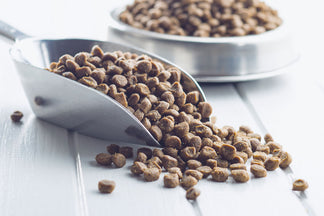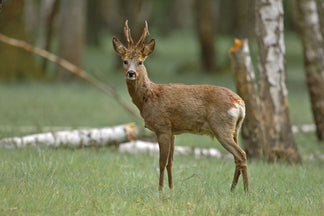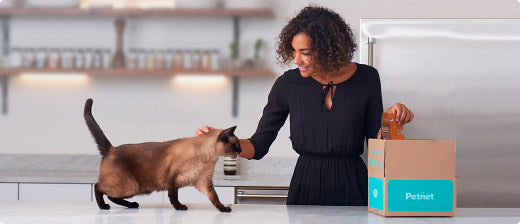In our ongoing series on Healthy Ingredients for Your Pet, Kale was a natural ingredient to focus on. Kale has been likened to a ‘superfood’ for humans as it provides a long list of benefits to your health. Your pet can reap these benefits too!
What is Kale?
Kale is a hardy, leafy vegetable and a member of the Brassica oleracea family (including cabbage, rutabagas, turnips, broccoli, and cauliflower). Kale may have green or purple leaves and comes in several leaf varieties including Cavolo nero (dinosaur kale, black cabbage), curly (Scots kale), plain and leaf and spear (hybrid of curly and plain).
Why is Kale in pet food?
Kale offers a long list of benefits to human health that translate to your pet. Cooked kale can be fed directly to your pet in small amounts and it can also be found in many commercially available pet foods. Specifically, kale offers the following health benefits: Antioxidants: contains carotenoids and flavonoids which provide protections against cancer.
- Vitamins: packed with additional anti-oxidants such as vitamins E, K, C and beta-carotene which offer a wide range of benefits.
- Minerals: packed with additional nutrients from Potassium, Calcium, Iron, Copper and Magnesium that are good for bone health and heart health.
- Omega-3: anti-inflammatories which boost your immune system to fight off infections of all kinds.
- Phytochemicals: Shown to reduce cancer risk and slow cancer growth.
- Lutein: may be something you’ve never heard of, but it promotes eye health.
- Low in calories: always good for your pet to watch their weight.
- High in fiber: helps keep the digestive track moving.
All of these positive benefits are why more pet food companies are adding kale to their recipes. We offer a few examples of foods containing kale that you might try below.
Are there any risks to feeding your pet Kale?
One potential issue is created by the oxalates found in kale. They clock the absorption of calcium, so be sure your pet has other sources of that important mineral. And given its high fiber content, gas might be potential issue.
If you do feed kale directly to your pet, be sure and wash it thoroughly to remove any pesticides and you should cook the kale lightly. Raw Kale (and other cruciferous vegetables) can cause thyroid issues in some cases, but cooked kale is fine.
Interesting facts about Kale:
Some varieties of kale can reach a height of six or seven feet tall. Kale contains only 33 calories per cup and more than 3 grams of protein and more vitamin C than an orange!
Pet foods that contain Kale:
Primal Canine Chicken Freeze Dried (dog)
Party Animal Cocolicious Salmon & Pork (dog)
Wellness Core Grain-Free Ocean (dog)
Nutram T24 Grain Free Salmon & Trout (cat)
Sources:
https://en.wikipedia.org/wiki/Kale
https://www.mindbodygreen.com/0-4408/Top-10-Health-Benefits-of-Eating-Kale.html
http://smartdogowners.com/kale/
http://slimdoggy.com/is-the-latest-superfood-kale-good-for-dogs/
http://animalwellnessmagazine.com/kale-super-food-for-pets/
https://ultimatehomelife.com/can-dogs-eat-kale-or-is-kale-for-dogs-bad/


 Food
Food
 Food
Food
 Food
Food
